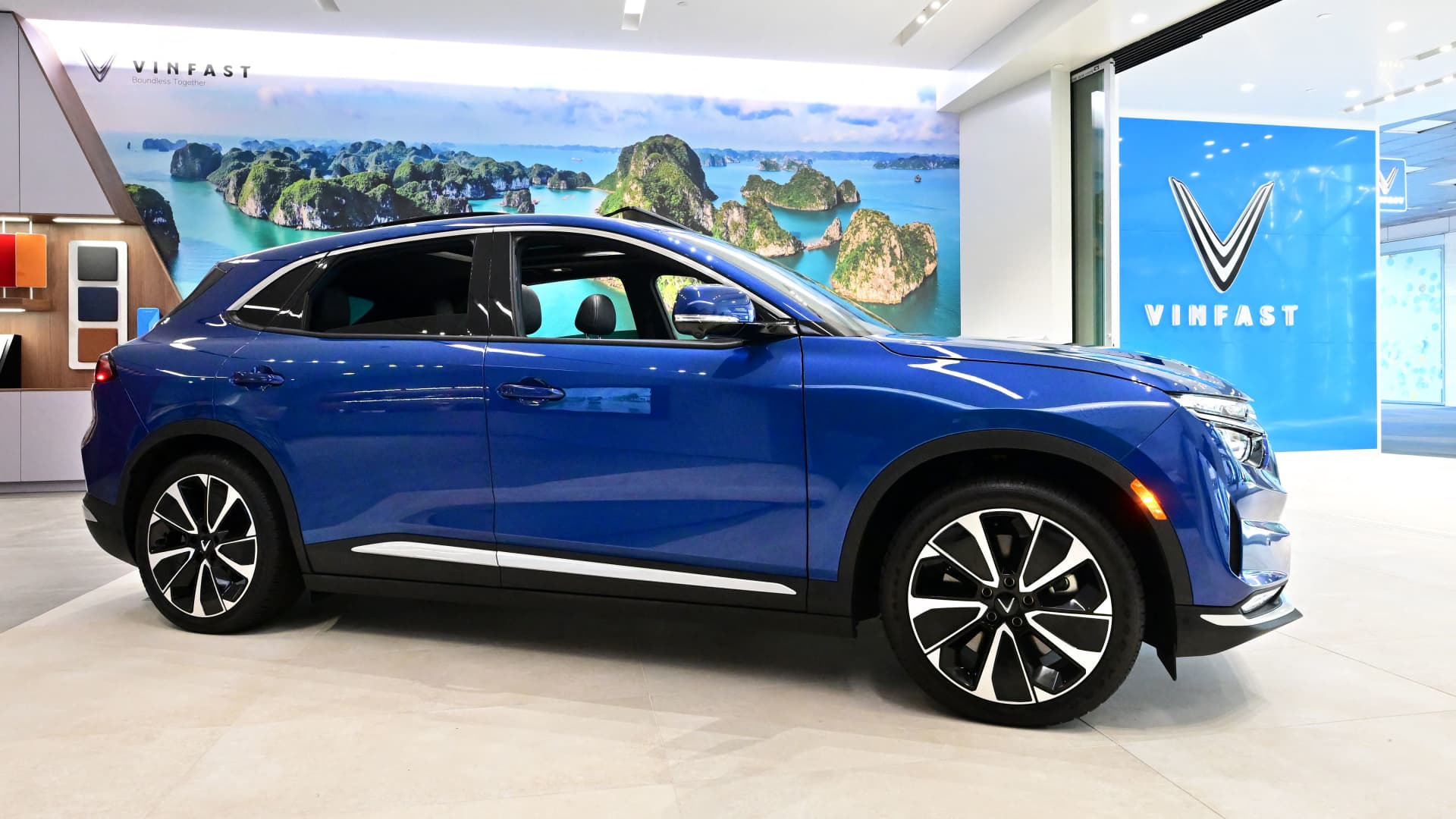Vietnamese EV maker VinFast is going public in the U.S.
VinFast on Tuesday said it has filed a registration statement with the U.S. Securities and Exchange Commission, the first formal step toward a public offering next year. The company in March announced plans for a $2 billion factory in North Carolina and hopes to deliver its first vehicles to American customers by year-end.
Citigroup Global Markets, Morgan Stanley, Credit Suisse and J.P. Morgan Securities are the lead bankers on the offering. VinFast will trade on the Nasdaq under the symbol “VFS” once its offering is completed. The company didn’t say how much money it’s hoping to raise.
VinFast became Vietnam’s first domestic automaker when it began manufacturing internal combustion vehicles in 2019. It’s now focused entirely on electric vehicles – production of its last internal-combustion model ended in early November. The company is currently taking reservations for two electric SUVs, the midsize VF8 and larger VF9.
The VF8 and VF9 start at $57,000 and $76,000, respectively – but both can be ordered without batteries, lowering the up-front cost significantly, if the buyer opts for a monthly battery subscription. Without batteries, the VF8 and VF9 start at just over $42,000 and $57,500; the battery subscriptions are priced at $169 per month for the VF8 and $219 per month for the larger VF9.
As of the end of September, VinFast had about 58,000 worldwide reservations for the two models. For now, all VinFasts are made at the company’s factory in Haiphong; it hopes to have its U.S. factory, with a capacity of 150,000 vehicles per year, up and running by July 2024.
While VinFast is new to the United States, it’s not a typical startup. Founded in 2017, VinFast is a unit of Vingroup, Vietnam’s largest conglomerate, which has interests in real estate development and education as well as a number of technology businesses.
But while Vingroup is well established in its home country, VinFast itself isn’t yet profitable: It lost about $1.3 billion in 2021, and an additional $1.4 billion through the first three quarters of 2022.

stromectol 12 mg – ivermectin 12 mg otc buy tegretol tablets
buy generic accutane 20mg – how to get decadron without a prescription buy zyvox generic
buy amoxil pills – buy generic combivent 100 mcg buy combivent 100 mcg for sale
order generic zithromax – tindamax 500mg generic bystolic 20mg brand
buy prednisolone pill – purchase azithromycin pills buy prometrium generic
buy gabapentin sale – order gabapentin 800mg for sale order sporanox 100mg online
furosemide sale – buy generic piracetam over the counter where can i buy betnovate
order doxycycline pill – buy glipizide pills for sale order glipizide online cheap
augmentin 375mg brand – oral augmentin purchase duloxetine sale
semaglutide 14mg cheap – vardenafil 20mg over the counter order cyproheptadine 4 mg generic
tizanidine oral – brand microzide 25 mg buy microzide 25mg
cialis otc – sildenafil ca purchase viagra sale
order viagra online – buy viagra online order tadalafil sale
order cenforce 50mg online cheap – order aralen 250mg without prescription purchase metformin online cheap
prilosec 20mg cost – prilosec 20mg sale cost atenolol
methylprednisolone 16 mg over counter – buy generic pregabalin for sale triamcinolone tablet
clarinex 5mg without prescription – order claritin online cheap dapoxetine 30mg brand
order misoprostol 200mcg sale – purchase diltiazem buy diltiazem without prescription
zovirax where to buy – allopurinol cost crestor 20mg canada
cost domperidone 10mg – oral flexeril 15mg cyclobenzaprine online
propranolol pills – inderal 10mg for sale methotrexate 5mg canada
warfarin price – order reglan 10mg for sale buy losartan 50mg generic
esomeprazole 20mg without prescription – buy topiramate 200mg generic buy sumatriptan 50mg pill
order meloxicam generic – mobic order flomax 0.2mg usa
buy ondansetron 4mg generic – order spironolactone 25mg zocor 20mg oral
buy valacyclovir generic – valtrex 500mg price buy diflucan sale